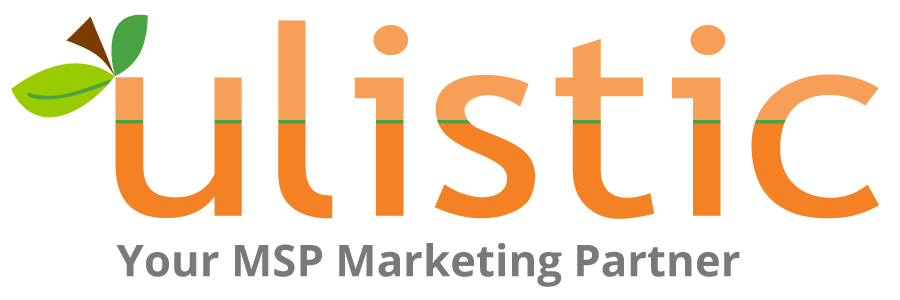What the Heck Is SEO Poisoning?
When you have a webpage, one of the key factors is to protect it and prevent possible bad actors from accessing your webpage's information or even serving as a method of attack for third parties. There are many threats that can affect website owners. The threats can come in the form of vulnerabilities, insecure plugins, and human errors that we make.
Your website is valuable, not only for you and your site's visitors but also for bad actors. We've seen how bad actors poison SEO to thwart search engine algorithms. To increase their rankings with Google and other search engines and redirect users to an infected site, bad actors contaminate search results with popular terms. Attackers are not showing any signs of slowing down. In fact, we've seen an increase in attackers using SEO poisoning or Spamdexing, with high rates of success, to serve malicious payloads to customers.
How Does SEO Poisoning Work?
SEO poisoning is one of the concerning security problems that can affect a webpage. One of the SEO objectives for any company that has a website is to position it correctly in search engines. For example, visitors will open the Google webpage, and through a series of terms, they will receive website suggestions that relate to their search terms. This is what we refer to as SEO. Now, SEO can be used by attackers to increase traffic to certain websites that are malicious. This is also what is known as Black Hat SEO.
Black Hat SEO is any technique that goes against search engine rules and guidelines to manipulate search engine algorithms. What an attacker does with SEO poisoning is optimize a webpage so that it appears in the top results on a search engine. The unsuspecting victim will click on that website under the impression that the website is not only relevant but safe. The victim will quickly find that they have actually accessed a page that may be dangerous.
It is important to take into account that search engines like Google are progressively perfecting their operations to better detect these types of techniques. However, as with other types of cyberattacks and Black Hat techniques, pages that are fraudulent can sometimes sneak in and appear on the first page of results.
This website will be one that belongs to the attacker. Hackers can create these pages to discuss a certain topic, promote a popular product or service, or anything else that will attract visitors. The hackers could also use a legitimate website, which the hackers could control and alter for their purposes.
Ransomware Groups Are Infecting Internet Users with SEO Poisoning
Researchers from Menlo Security recently uncovered campaigns that were linked to well-known ransomware groups infecting unsuspecting netizens( users of the internet).
- The attackers injected WordPress-based sites with keywords covering 2,000 unique search topics and terms.
- Malicious websites were optimized for these keywords on Google.
- Unsuspecting internet users were shown search results as PDFs, urging them to download the document.
- The redirects restricted sites from being removed from the search results.
The researchers discovered that bad actors were hacking legitimate websites with high-ranking Google searches instead of establishing their own malicious sites. Hackers would exploit websites through an undisclosed vulnerability in the Formidable Forms WordPress plugins to upload infected PDFs into the /wp-content/uploads/formidable/ folder. Recommendations were made to those who were using that plugin to update it to the latest version. Websites in the business category have been heavily targeted by bad actors because their sites are known to host PDFs as guides, white papers, or reports.
What Do Bad Actors Get Out of SEO Poisoning?
SEO poisoning is something that could put internet users at risk, but how could it impact users? What can bad actors achieve with a Black Hat SEO attack?
Malware Infection
One of the most common uses of a website infected with SEO poisoning is to infect a user's device or application with malware. Through the SEO poisoning technique, bad actors upload malicious files with the intent that unsuspecting victims will download the files thinking that they are legitimate and that nothing could possibly go wrong.
There is a variety of malware being produced, and many types of malicious software can put your devices and applications at risk. In many cases, the malware shows up through downloads that are made on sites that are not malicious. This is one of the reasons cybercriminals make use of these tactics and techniques.
Password Theft
Bad actors can also use SEO poisoning to position a website that is more than capable of stealing account credentials, including passwords. Bad actors can create multiple webpages to carry out phishing attacks. In this way, the unsuspecting victim will use their credentials on the page thinking the page they are using is a legitimate page, but in actuality, the users are placing their credentials into a malicious site that will eventually make their way to cybercriminals.
Stay Current with the Threat Landscape
The sudden rise in remote working has led to an increase in SEO-based attacks, such as SEO poisoning. The remote workforce involves open-internet searches via web browsers, which increases the chances of bad actors manipulating SEO. Search Engine Optimization is one of the most important keys to having a successful MSP business. Having your MSP website at the top of search results is indispensable for your MSP business.
With bad actors and ransomware groups developing and perfecting new tactics and techniques, it's critical for MSPs to be on high alert. It is also important for MSPs of all sizes to stay current with the latest threat landscape and remain vigilant. It is important to make sure you aren't neglecting your site's security. There's always a chance that your site could be hacked. SEO poisoning can be a major setback, affecting your MSP business and your brand reputation.
Find out how Ulistic can help you save your website and your online reputation by providing the best services and solutions that won't ruin your MSP business. Give us a call at 863-451-3088.



